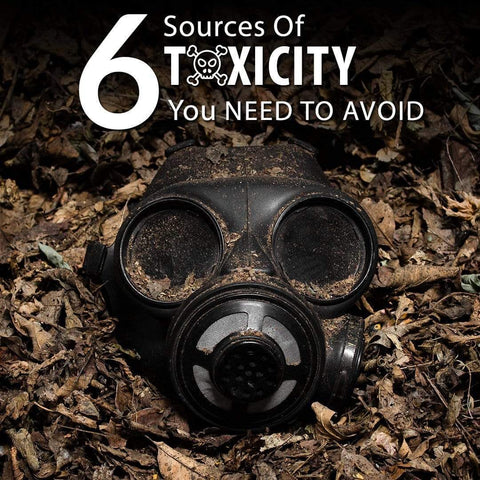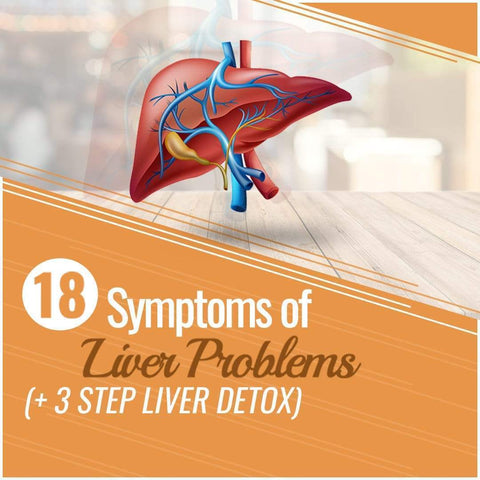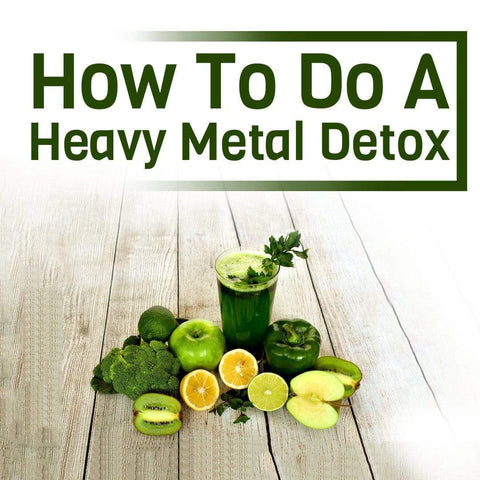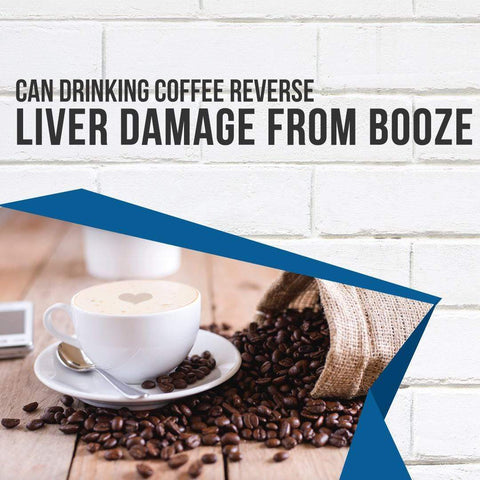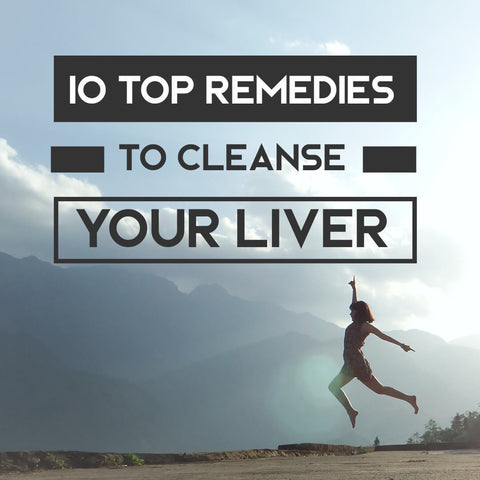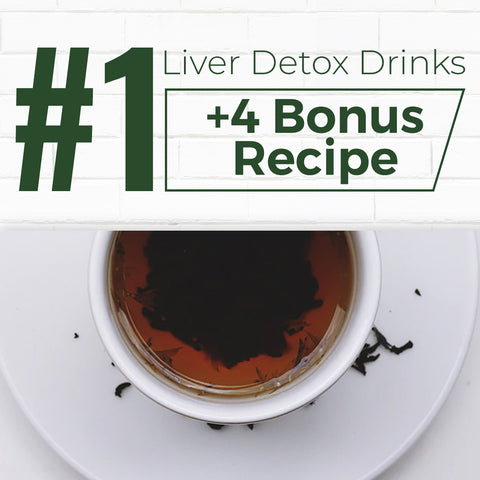
You’ve probably heard about inflammation and how this process is implicated in many diseases.
Inflammation exists to send signals to the immune system to neutralize damaging threats to your body. Unfortunately, excessive inflammation can cause oxidative stress which damages your tissues.
Key Point
Elevated liver enzymes are a sign that your liver is being damaged by inflammation. Your liver can become chronically inflamed from a variety of reasons.
When searching for signs of liver problems, two enzymes are often measured in the blood that indicate inflammation and damage to the liver. These enzymes are alanine transaminase (ALT) and aspartate transaminase (AST).
Tests for these enzymes can indicate whether the liver is healthy and can help identify liver diseases.
As you can guess, you don’t want these enzymes to be elevated. Your liver is so important to your health, and in more ways than you can imagine.From detoxification to hormone regulation, the metabolism of fats, digestion, and many other functions are handled by the liver.
Why Might Your Liver Enzymes Be Elevated?
Here are some reasons why your enzymes might be high.
1. Non-Alcoholic Fatty Liver Disease (NAFLD)
This is a shockingly common form of liver disease. It is said that around one-third of the American population has Non-Alcoholic Fatty Liver Disease (NAFLD) 1. This disease is so common because it is deeply connected with obesity and type II diabetes. Unfortunately, a large percentage of the American population has developed these diseases.
NAFLD signifies that deposits of fat have built up in the liver, a clear sign of liver disease. Fatty deposits can also occur as a result of alcoholism, but in NAFLD, the cause is not alcohol. Instead, overeating, eating junk food (processed foods and low-quality animal products), lack of exercise, and other factors cause an elevation in insulin, blood sugar, and circulating fatty acids which overwhelm the liver.
NAFLD can be reversed in many cases. Losing weight and eating whole foods can set you on the road to having a healthy liver again.
Exclusive Bonus! Download the FREE report ‘How To Detox Your Liver & Body in 3 Simple Steps’ by clicking here.
2. Medication-Associated Liver Injury
Drugs like acetaminophen (Tylenol) can deplete your liver of its protective, detoxifying antioxidant glutathione 2. If this antioxidant is depleted to an extremely low level, your liver can fail 2!
High doses of many medications can overwhelm the liver and cause damage. The liver has to process medications, and sometimes these drugs can overwhelm the liver’s detoxification abilities. Over-the-counter pain medications cause tremendous harm to millions of people who take them too liberally. Drugs like acetaminophen (Tylenol) can deplete your liver of its protective, detoxifying antioxidant glutathione 2. If this antioxidant is depleted to an extremely low level, your liver can fail 2!
The oxidative stress that drugs like acetaminophen can cause to liver cells actually destroys the energy powerhouses of the organ (mitochondria) so that liver cells cannot produce energy to fulfill their functions 2 .
Many other medications put burdens on the liver. So if you overdo the pills, elevated liver enzymes might be the result.
3. Other Toxicity-Induced Liver Injuries
Animal studies have shown that air pollution “can induce liver toxicity and act to accelerate liver inflammation” 3. And in humans, air pollution exposure is “associated with” liver diseases 3.
It’s not just medications that can cause liver toxicity. Any toxin or toxicant, whether produced by nature or human industry, can harm the liver.
Unfortunately, our world is full of industrial pollutants. So many synthetic pesticides and herbicides, heavy metals, and other toxic chemicals are in our food, water, and air. There is little doubt that the pollutants around us are harming our livers.
Animal studies have shown that air pollution “can induce liver toxicity and act to accelerate liver inflammation” 3. And in humans, air pollution exposure is “associated with” liver diseases 3.
4. Viral Hepatitis
Hepatitis refers to inflammation of the liver.
Various viruses can infect the liver and cause chronic inflammation, which damages liver tissue. 2% of Americans have some form of Viral Hepatitis while 2.7% all over the world.
Hepatitis A, B, and D are preventable by vaccination. Some types of hepatitis are spread by infected blood and needles, whereas others can be spread by contaminated food or water. Hepatitis raises a person’s risk of liver failure because of the damage it causes.
5. Alcoholic Liver Disease

Chronic heavy alcohol consumption can damage your liver.
The metabolism of alcohol produces a toxic chemical, acetaldehyde. This chemical damages liver cells, plain and simple.
Depending on the length of time someone has consumed large amounts of alcohol, the liver can experience various degrees of damage.
Fatty liver is the least serious form of damage and can usually be reversed by alcohol abstinence. Alcoholic hepatitis is more serious, as it signifies that large amounts of alcohol have been consumed for a long time. And the most serious degree of damage is liver cirrhosis, in which normal liver tissue is replaced with scar tissue.
6. Hemochromatosis
This is a genetic disorder in which the body builds up too much iron. Excessive iron is deposited in the liver and damages the tissue.
Excessive iron is usually treated by the administration of chelation agents that drag metals like iron out of the body or by good old-fashioned bloodletting to reduce iron levels.
7. Alpha-1 Antitrypsin Deficiency
This is another genetic condition in which the protein alpha-1 antitrypsin is misshapen and accumulates in liver cells, leading to damage and elevated liver enzymes. This condition leads to impaired liver function and can, unfortunately, lead to liver failure in a minority of sufferers.
8. Wilson Disease

Yet another genetic condition, in Wilson Disease, excessive copper builds up in the liver, and excessive metals are never healthy for the liver!
Excessive copper causes oxidative damage to the tissue, and hepatitis and cirrhosis can develop.
9. Mononucleosis
Many of us contract the mono virus in our teenage years. It’s like a horrible, extended flu virus. In severe cases of mononucleosis, some organs can become inflamed, causing elevations in enzymes. Sometimes, spleens and livers become inflamed due to a mono infection.
10. Autoimmune Hepatitis
The causes of autoimmunity aren’t entirely known, but medical professionals and researchers do know that genetics and environmental pollutants can play a role.
A healthy immune system is supposed to attack pathogens (bacteria, viruses, etc.) that pose a threat to the body. But when the immune system malfunctions, it can attack your own body’s tissues.
The causes of autoimmunity aren’t entirely known, but medical professionals and researchers do know that genetics and environmental pollutants can play a role. For instance, pollutants in your tissues can cause the immune system to attack your body because these toxic foreign compounds are recognized as just that – foreign – thus triggering the immune system 4.
Because of these invading toxins present in and around your cells, your immune system can no longer recognize your body’s tissues 4.
Does your liver need a detox?
Poor diet and lifestyle choices, as well as everyday pollutants and toxins can have a harmful effect on your liver.
After all, it’s job is to act like one big detox factory. But sometimes it can get overloaded and could use a little help.
Help your liver perform at its best with a clean and natural detox.
Click here to download the FREE report by Nutritionist Evan Burns, which reveals how to cleanse and detox your liver in 3 steps. Yours FREE for a limited time.




